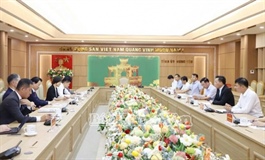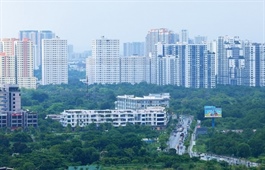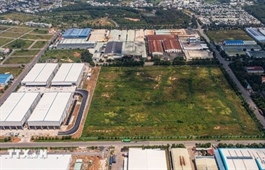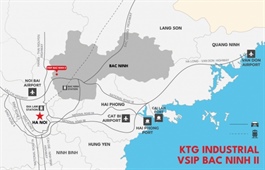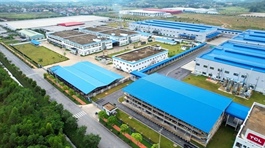Transparency expected from state-managed centres
Transparency expected from state-managed centres
Potential establishment of state-managed property transaction centres is being positioned as a strategic policy tool to improve market oversight and enhance homebuyer protection.
The Ministry of Construction (MoC), in collaboration with the Vietnam Association of Realtors, is drafting a proposal to establish state-managed centres with the aim of standardising transaction procedures, integrating key datasets, and ensuring that only legally qualified properties are introduced to the market.

Transparency expected from state-managed centres, Source: freepik.com/ AI-generated |
When put into operation, the initiative is expected to mark a turning point in efforts to professionalise the sector, limit informal transactions, and bolster investor confidence.
According to Tong Thi Hanh, director of the Housing and Real Estate Market Management Agency under the MoC, the centre will contribute to fostering a transparent and healthy business environment, while also protecting the reputation of real estate brokers.
“This is a decisive step towards establishing a legal framework and supportive tools that give brokers peace of mind in their profession, and bring the real estate market closer to professional, safe, and transparent standards,” Hanh emphasised at the Real Estate Realtors Festival held in Bac Ninh province on June 29.
“We expect transparent control from the supply of qualified real estate to the process of resolving administrative procedures during the real estate transaction until the issuance of certificates to the people. Especially this centre will create a positive effect on real estate brokers and real estate trading floors, connecting buyers and sellers, until the merger of real estate transactions,” Hanh added.
The centre would fulfill key functions such as disclosing actual transaction prices, zoning and legal information for each property, providing an online transaction platform for individuals and organisations, linking public service agencies to ensure fast and legal transactions, and supervising brokerage activities, standardising procedures, and enhancing professional ethics in real estate.
“The establishment of such a centre would not only minimise underground transactions but also enable the state to create more accurate land valuation mechanisms, implement property taxes more effectively, and reduce the risk of real estate bubbles,” Hanh noted.
Speaking with VIR, Marc Townsend, senior advisor at Arcadia Consulting from Singapore, noted that he has seen how governments elsewhere collect and use sales and leasing data to ensure sufficient developable land supply, monitor price trends, collect taxes, and manage the impact of stamp duties.
“It works well, and investors, homebuyers, brokers, analysts, and developers all rely on the data. The information is current, accurate, and reliable. Taxes are low, so there is little incentive to game the system. Any violators are strictly penalised. A transparent system like this would be immensely beneficial for Vietnam’s real estate sector,” said Townsend.
In reality, transactions in the high-end and luxury segment are currently being handled by professional property management companies such as CBRE, Savills, JLL, Cushman & Wakefield, Knight Frank, and Avison Young, along with hundreds of domestic firms. These organisations provide a comprehensive view of the market, helping investors and buyers make informed decisions.
In contrast, transactions in the private and affordable housing segment are often carried out through private brokerage firms or individual agents.
Hoang Ha, an investor in Ho Chi Minh City, told VIR that in many cases, buyers are unable to access complete legal, planning, project progress, or property value information.
“Price inflation, fraud, and ghost projects are increasingly common, especially during land fever episodes,” Ha said. “Additionally, the lack of a transparent transaction system makes it difficult for regulatory agencies to control the market, collect taxes, and accurately assess land values. If effectively implemented, the state-managed property transaction centre will act as institutional infrastructure to standardise transaction processes, protect the rights of all parties, and provide clear information.”
For the public, especially homebuyers, a state-managed centre could serve as a reliable information channel, helping them access products suited to their needs and financial capacity, while reducing reliance on unprofessional intermediaries.
“We won’t have to worry when looking for real estate information for buying or selling assets. There’ll be no fear of being overcharged by independent brokers when this government-backed centre comes into operation,” said Quynh Nguyen, a private investor in Hanoi.
According to plan, the MoC will submit the proposal to the government and seek feedback from the Politburo before presenting it to the National Assembly in October. If approved, the centre is expected to begin operations in 2026.
The establishment of the centre should be implemented in phases, the plan notes, firstly piloted in major cities like Hanoi, Ho Chi Minh City, and Danang, then expanded to other provinces.
- 09:38 17/07/2025








